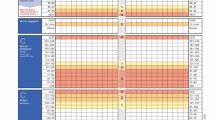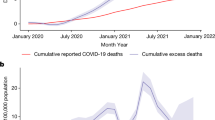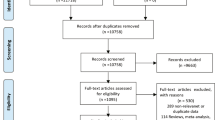Abstract
Medical-Legal Partnerships (MLPs) are evidence-based, interdisciplinary collaborations between health systems and legal service organizations designed to address health-harming legal needs among low-income patients and their families. MLPs provide civil legal services and advocacy around health-harming needs, such as substandard housing, food insecurity, benefit denials, education and employment barriers, legal status, custody, and child support. Widely implemented in pediatric health settings, research supports MLPs ability to positively impact the health trajectories of children and their families. This manuscript describes our health system’s innovative development and pilot implementation of the first MLP in a neonatal intensive care unit (NICU). We share our MLP integration strategies, scope of practice, screening processes, workflow, and challenges. We conclude with anticipated areas of growth and future direction for this program, which we believe will address health-harming legal needs for our patients in their earliest weeks of life.
This is a preview of subscription content, access via your institution
Access options
Subscribe to this journal
Receive 12 print issues and online access
$259.00 per year
only $21.58 per issue
Buy this article
- Purchase on Springer Link
- Instant access to full article PDF
Prices may be subject to local taxes which are calculated during checkout


Similar content being viewed by others
Data availability
Data sharing is not applicable to this article as no raw data was generated or analyzed during this work.
References
Wood D. Effect of child and family poverty on child health in the United States. Pediatrics. 2003;112:707–11.
Marple K. Framing legal care as health care. Washington, D.C.: National Center for Medical-Legal Partnership. 2015.
Legal Services Corporation. The Justice Gap: Measuring the Unmet Civil LEgal Needs of Low-income Americans. 2017.
Beeson T, Mcallister BD, Regenstein M. Making the case for medical-legal partnerhips: a review of the evidence. Washington, D.C.: National Center for Medical-Legal Partnership. 2013.
Murphy C. Making the case for the medical-legal partnerships: an updated review of the evidence, 2013–20. Washington, D.C.: National Center for Medical-Legal Partnership. 2020.
Sege R, Preer G, Morton SJ, Cabral H, Morakinyo O, Lee V, et al. Medical-legal strategies to improve infant health care: a randomized trial. Pediatrics. 2015;136:97–106.
Klein MD, Beck AF, Henize AW, Parrish DS, Fink EE, Kahn RS. Doctors and lawyers collaborating to HeLP children-outcomes from a successful partnership between professions. J Health Care Poor Underserved. 2013;24:1063–73.
Davis K, Fair ML, Buckingham C, McKinnon H, Theriot Roley L, Sease K. Impacts of a medical-legal partnership on clinical capacity to address social determinants of health. J Epidemiol Community Health. 2022.
Health Leads. The Health Leads Screening Toolkit Boston, MA2022 [Available from: https://healthleadsusa.org/communications-center/resources/the-health-leads-screening-toolkit/.
American Academy of Family Physicians. The EveryONE Project: Assessment and Action 2023 [Available from: https://www.aafp.org/family-physician/patient-care/the-everyone-project/toolkit/assessment.html.
Centers for Medicare & Medicaid Services. The Accountable Health Communities Health-Related Social Needs Screening Tool.
National Association of Community Health Centers I. Association of Asian Pacific Community Health Organizations, and Oregon, Association PC. PRAPARE: Protocol for Responding to and Assessing Patients’ Assets, Risks, and Experiences. 2016.
Acknowledgements
The authors would like to thank all of the members of the Doernbecher Medical-Legal Partnership team along with hospital leadership for their effort and support. Most importantly, the authors would like to send thanks to the families involved in the DMLP.
Funding
No external funding was received for this manuscript. Susanne Klawetter is supported in part by the National Institute of Mental Health #K08MH127519.
Author information
Authors and Affiliations
Contributions
GL, ML, and KS conceptualized and designed this work, drafted the initial manuscript, and reviewed and revised the manuscript. All authors approved the final manuscript as submitted and agree to be accountable for all aspects of the work.
Corresponding author
Ethics declarations
Competing interests
The authors declare no competing interests.
Ethics approval and consent to participate
This work did not involve human subjects as it involved programmatic development. The institutional review board at Oregon Health and Science University has approved various research projects involving this medical-legal partnership program.
Additional information
Publisher’s note Springer Nature remains neutral with regard to jurisdictional claims in published maps and institutional affiliations.
Rights and permissions
Springer Nature or its licensor (e.g. a society or other partner) holds exclusive rights to this article under a publishing agreement with the author(s) or other rightsholder(s); author self-archiving of the accepted manuscript version of this article is solely governed by the terms of such publishing agreement and applicable law.
About this article
Cite this article
Gievers, L., Mutrie, L. & Klawetter, S. Novel perinatal medical-legal partnership development and pilot implementation to address health-harming legal needs. J Perinatol 44, 136–141 (2024). https://doi.org/10.1038/s41372-023-01829-8
Received:
Revised:
Accepted:
Published:
Issue Date:
DOI: https://doi.org/10.1038/s41372-023-01829-8



